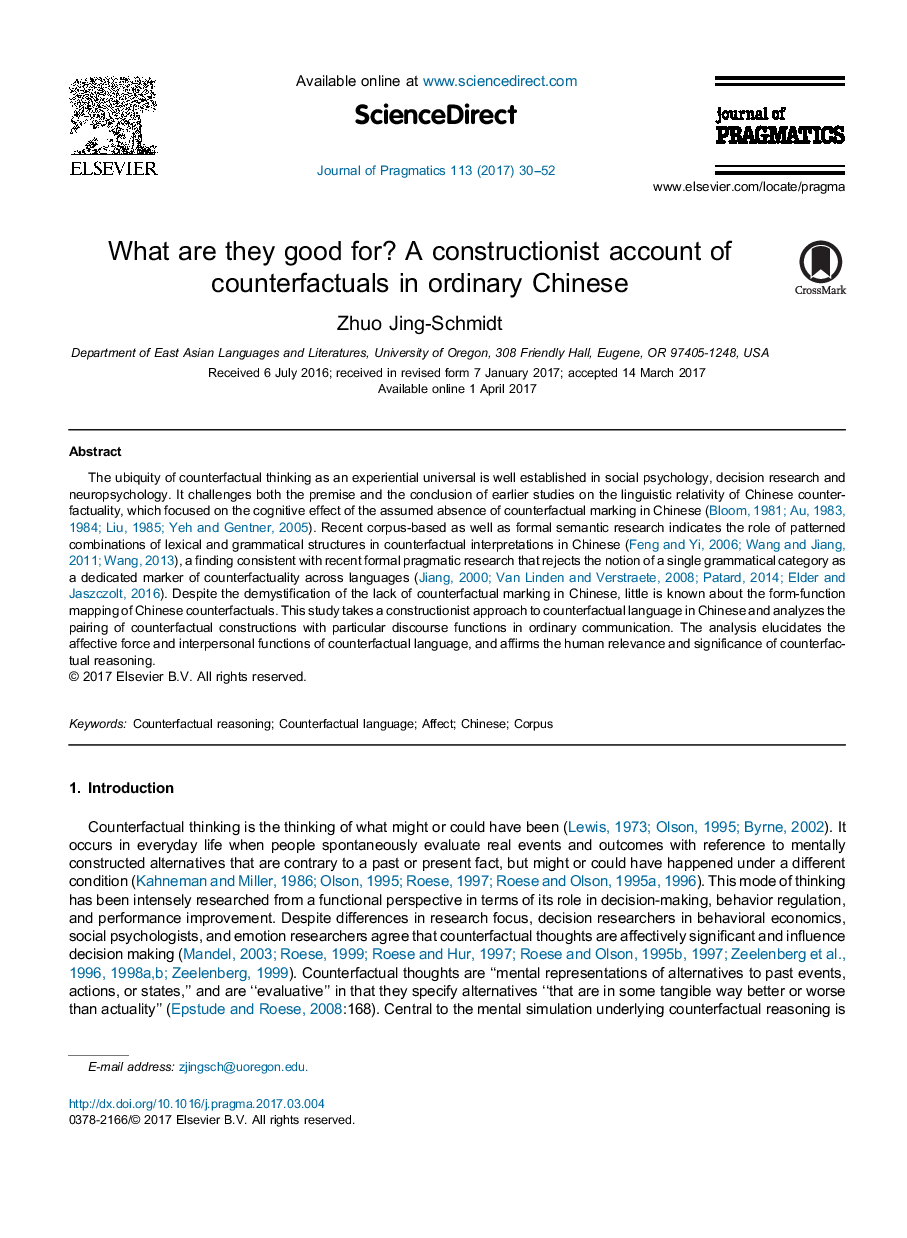| Article ID | Journal | Published Year | Pages | File Type |
|---|---|---|---|---|
| 5042689 | Journal of Pragmatics | 2017 | 23 Pages |
â¢This study offers a functional analysis of counterfactual language as a tool in conveying the ubiquitous human experience that is counterfactual thinking.â¢This study adopts a usage-based constructionist approach to counterfactual language in Chinese.â¢This study places the analysis of Chinese counterfactuals in the larger context of pragmatics with an emphasis on real-world communication.â¢This corpus-based analysis complements research that focuses on the formal logic of counterfactuality.
The ubiquity of counterfactual thinking as an experiential universal is well established in social psychology, decision research and neuropsychology. It challenges both the premise and the conclusion of earlier studies on the linguistic relativity of Chinese counterfactuality, which focused on the cognitive effect of the assumed absence of counterfactual marking in Chinese (Bloom, 1981; Au, 1983, 1984; Liu, 1985; Yeh and Gentner, 2005). Recent corpus-based as well as formal semantic research indicates the role of patterned combinations of lexical and grammatical structures in counterfactual interpretations in Chinese (Feng and Yi, 2006; Wang and Jiang, 2011; Wang, 2013), a finding consistent with recent formal pragmatic research that rejects the notion of a single grammatical category as a dedicated marker of counterfactuality across languages (Jiang, 2000; Van Linden and Verstraete, 2008; Patard, 2014; Elder and Jaszczolt, 2016). Despite the demystification of the lack of counterfactual marking in Chinese, little is known about the form-function mapping of Chinese counterfactuals. This study takes a constructionist approach to counterfactual language in Chinese and analyzes the pairing of counterfactual constructions with particular discourse functions in ordinary communication. The analysis elucidates the affective force and interpersonal functions of counterfactual language, and affirms the human relevance and significance of counterfactual reasoning.
